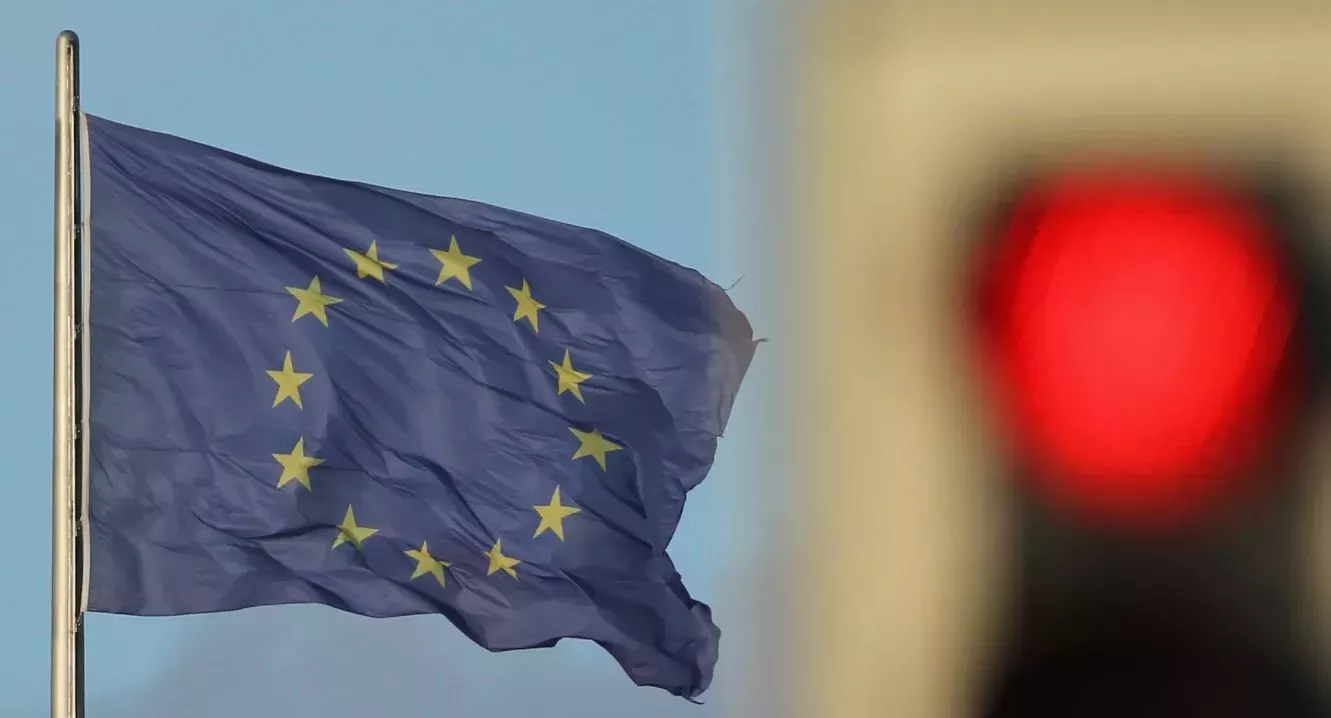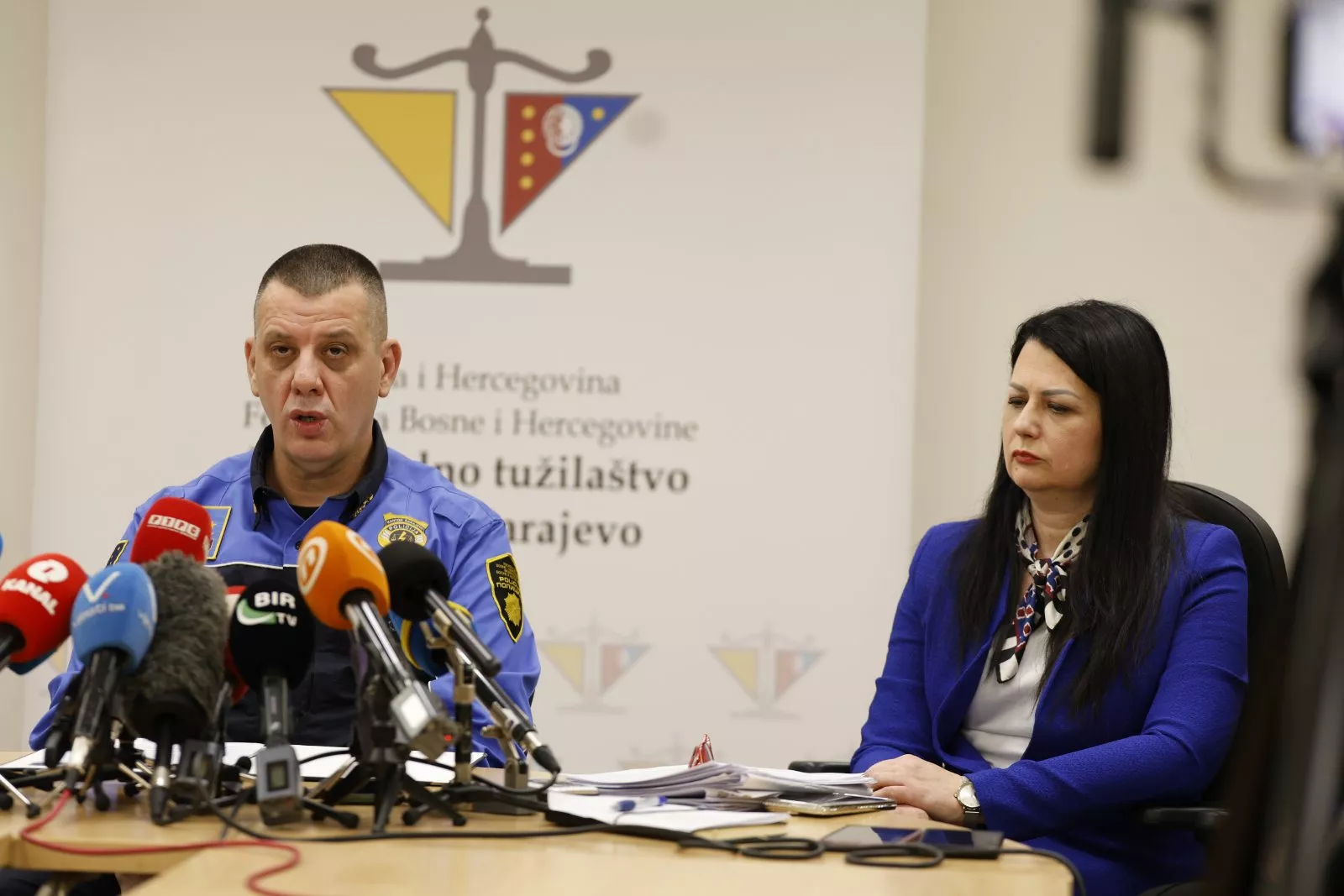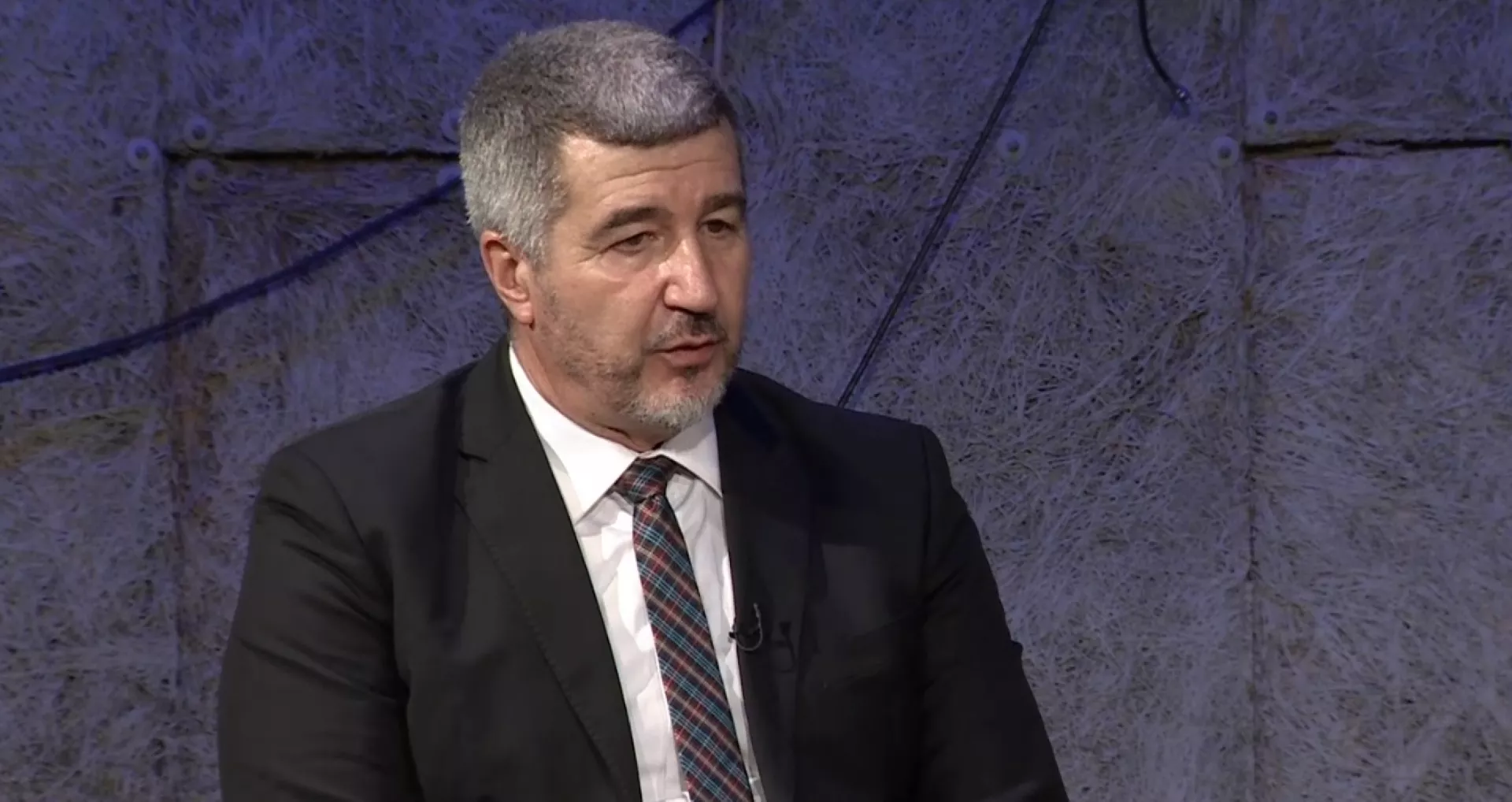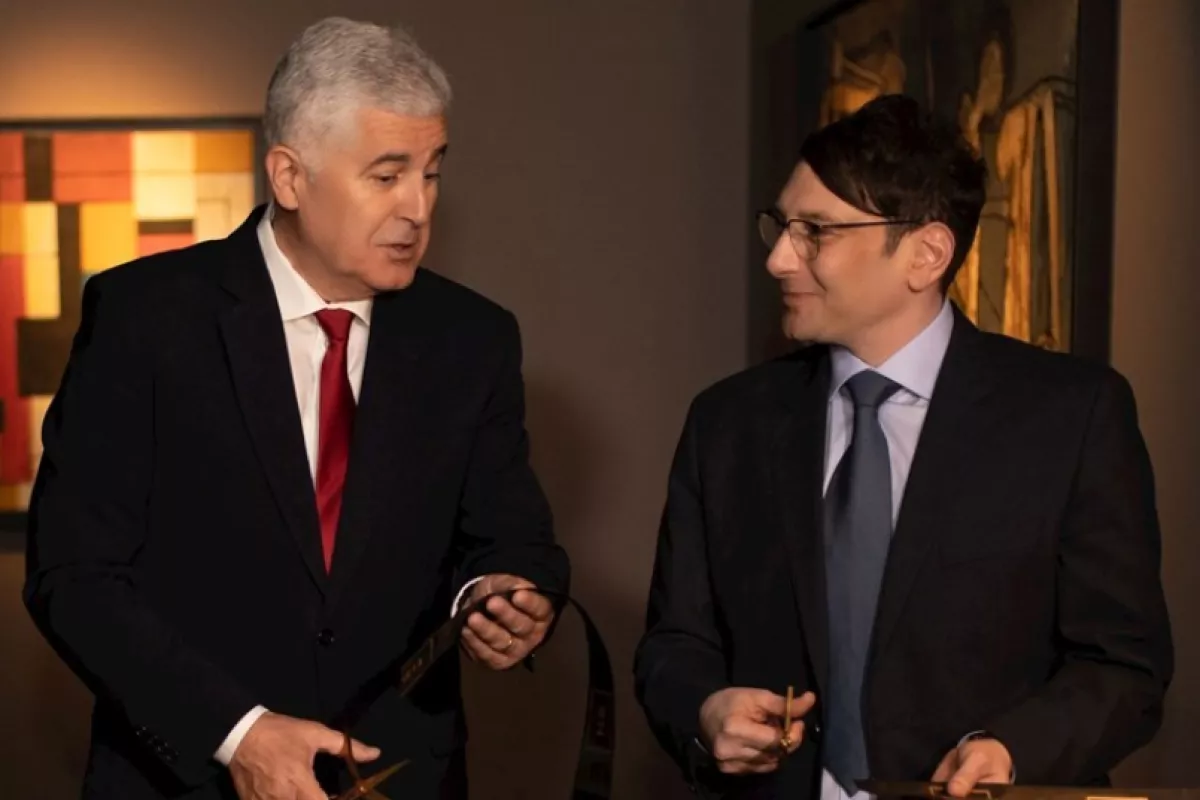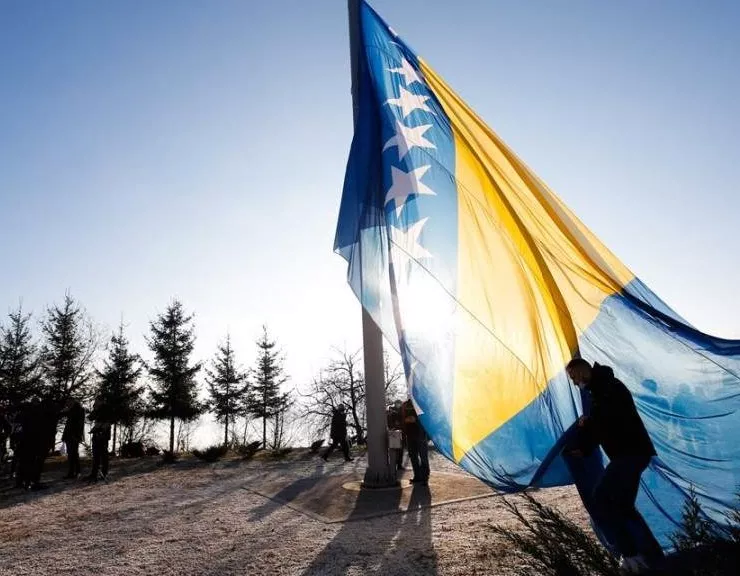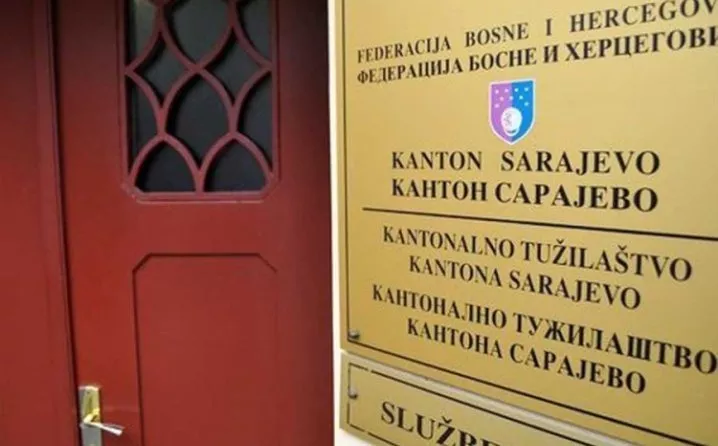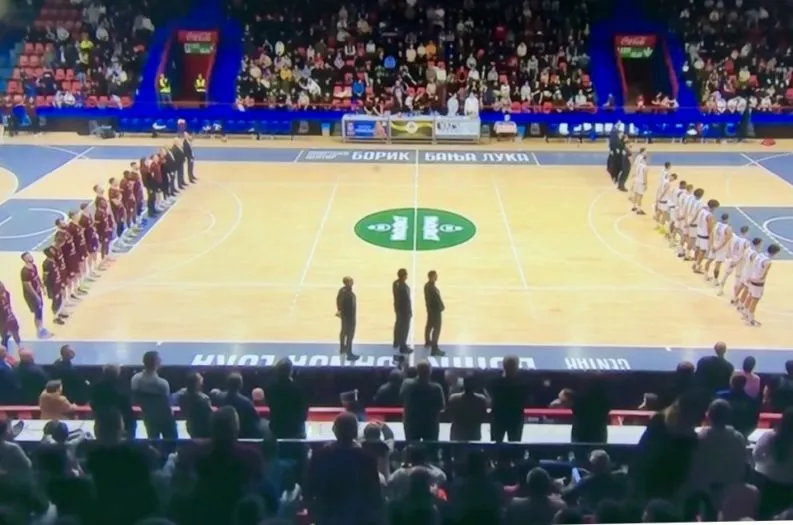


.jpg/dodik-dzaferovic-turska(1)__600x400.jpg.webp)
By: Muharem Cero and Armin Aljovic
(Patria) – There have been very few periods in post Dayton Bosnia and Herzegovina in which, in such short time, several critical events for the country took place, as it happened in the last two weeks – from Dodik's visit with Vatican, the meeting of Western Balkans leaders in Berlin, to the visit of Dodik and Dzaferovic with the influential Turkish president Recep Tayyip Erdoğan in Ankara.
All those events, separate and unrelated as they may seem, have got one common denominator – they all, individually and joined together, directly concern BH statehood.
The meeting in Vatican with Pope Francis ended with a debacle of Dodik's destructive politics in Bosnia and Herzegovina, at least as far as Holy See is concerned. The Berlin summit stance regarding BiH remains ambiguous; it did brush against BiH, yet it did not entirely distanced itself from it. It is likely to be due to the Serbia-Kosovo issue that surely has implications for BiH. For better understanding of impact of the Berlin discussions, one will have to await the upcoming meeting in Paris that has been announced as a sequence of the Berlin dialogue, only in a slightly narrower format.
Bosniak – Serb meeting with Erdogan, although the most recent of the events, may have the greatest influence on the future of Bosnia and Herzegovina, a historical one, we can say. The meeting in Ankara has hinted an alternative for Europe, not only for BiH but for the entire Western Balkans. The cost of Trump's indifference for the Balkans issues, and European indecisiveness coupled with its own internal problems, have created some sort of apathy of material in the political and human substance of the Balkans. British 'The Economist' refers to the Balkans as 'Europe's backyard'. And we know that the things not needed any longer are usually thrown away in the backyard.
That's one way to explain growing rumors about Eurasian union opening its doors to BiH and the region - instead of European Union.
Such statement could be substantiated with Dodik's statement after the meeting with Erdogan:
'I strongly presented the stance as to why the Republika Srpska considers that entire BiH should be militarily neutral and there were no particular convincing that such attitude should be any different. I was convinced that Erdogan understood my point.'
Whether it related to changing of geopolitical course of BiH and the region, we will not have to wait long to find out. It will be announced when the NATO path for BiH is no longer a condition for forming the Council of Ministers BiH; instead, when the whole situation becomes 're-structured' in favor of Dodik's politics, who claims to have received some sort of understanding from the Turkish president.
It is no secret that powerful China, Russia and Turkey have entered the Balkans, both economically and politically. We're thinking Serbia, BiH (Bosniak-Serb element), unfinished story of Macedonia, even Montenegro. After all, Dodik has recently drawn up some maps for the new project, and he could be seen as some kind of a mini PR for some big powers.
Should things continue to settle in the way we describe, a new problem would surface in BiH. The recent quick reaction by Bozo Ljubic – who is also somebody's PR – suggests that so-called Croat factor does not count on the offered Bosniak-Serb scenario.
'We have to decide where we belong; rhetorically, we are part of Europe and we follow Euro Atlantic integrations. We cannot be nonaligned in this polarized world, Ljubic said in his commentary on the Ankara meeting.
The citizens of the Western Balkans are striving to have a better life. If the Balkans remains the EU backyard, some nondemocratic systems may move in that backyard and occupy it in its entirety.
Why should BiH in such ratio of power get the short end of the stick? Bosniak and Serb leaders could take one part of the country towards the east, while the Croat politicians could take their part to the west.
After all, isn't the Serb-Croat boundary on the territory of Bosnia and Herzegovina the unrealized dream of national politics of Belgrade and Zagreb?
